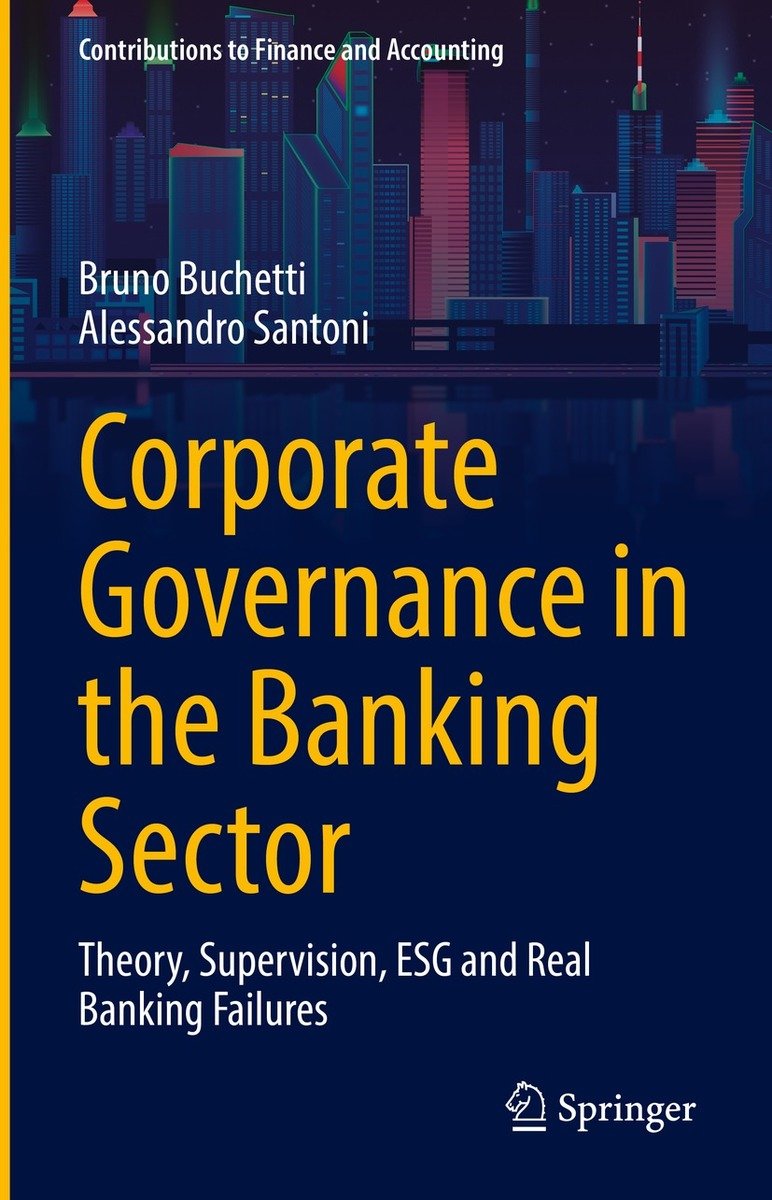This book gives an overview of the most important theories on Corporate Governance, investigating the myth and the reality of it. It argues that within the banking sector exist two new agency costs (i.e., bank depositors and shareholders vs. directors and bank depositors vs. shareholders and directors). These agency problems are difficult to reduce for two reasons. First, banks are complex and opaque. Second, government implicit guarantees and the deposit insurance systems reduce the monitoring of depositors.
This book also takes a deep dive into research on CG in the banking sector via a unique and innovative literature review covering the time period between 2000-2020. It finds that some specific CG characteristics affect banks: risk appetite, performance, accounting quality, compensation and corporate social responsibility disclosure.
Furthermore, this publication contends that institutional investors are changing CG for the better, describing how major financialmarkets factors such as rating agencies and sell-side financial analysts make CG visible. Additionally, it investigates how managerial biases and irrational investors can affect CG negatively, leading to company distress.
All-in-all, this book makes a threefold contribution: for regulators, it offers suggestions on how to improve banks´ supervision; for researchers, it suggests new research topics; and for practitioners, it connects CG theory with real cases of CG failure.


